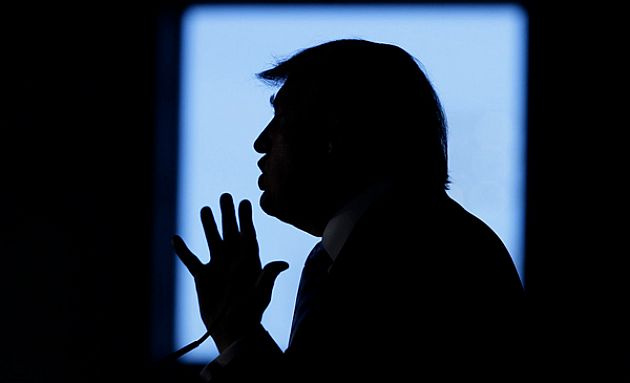Why Trump Is the Best Choice for Iran

By: Alireza Mirza-Abdullah
As the presidential campaign in the United States heats up, there rises the inevitable question for Iranians: which nominee, either Democrat or Republican, would better serve the Iranian diplomacy?
For the Islamic Republic of Iran, the best scenario would be a president under whose leadership Washington reduces the level of intervention in Middle East affairs, and withdraws its military forces from the Persian Gulf. The next best option would be a president who acknowledges Iran's regional status, remains fully committed to the Joint Comprehensive Plan of Action (JCPOA), and discards the double-standard approach towards terrorism and human rights. No need to say, White House's hostile policies towards Iran will not stop in short term or with replacement of one president with another, however the bad vs. worse dichotomy never ceases to be relevant.
Among the Democrat nominees, Senator Bernie Sanders is more popular among the Iranian elite. Despite his Jewish roots, Sanders is fully supportive of the JCPOA and believes that Washington should remain neutral in the struggle between Palestine and Israel. He also endorses resumptions of diplomatic relations between Iran and the United States. Hillary Clinton, the other Democrat nominee, also supports the JCPOA, but views Iran as the source of instability in the Middle East. Clinton is also staunchly pro-Israel, believes that Saudi Arabia is a key Washington ally and calls for stronger action against Iran despite the nuclear deal.
Republican candidates, on the other hand, are generally against the JCPOA, call for increase of pressure on Iran and support continuation of Washington's traditional policies in the Middle East.
Donald Trump is a different case however. An entrepreneur-turned-politician, he has entered the presidential race basically relying on his money. Trump's lack of familiarity with politics and international relations has led to controversial remarks, some of which are at odds with the United States' political and military doctrines. His recent remarks on supplying Japan and South Korea with nuclear weapons instead of deploying military forces to these countries are in stark contrast to the globally approved policy of non-proliferation. His outrageous remarks about banning Muslims from entering the US soil had earlier sparked off controversy.
But why is Trump good for Iran? For one thing, if he enters the White House, international relations will undergo a deep shift, a development that may not be necessarily bad for the Islamic Republic of Iran. Trump's insistence on his electoral policies will weaken the Western bloc and create new global alliances, which will eventually put Washington's allies in a weaker position. NATO, for instance, will lose much of its power with Trump in the White House. The presidential candidate has called the organization "obsolete".
There is also a possibility that with Trump's presidency, the strong alliance between Washington and Arab states of the Middle East becomes weaker or diminishes. The United States' current approach towards these countries is one of appeasement and unconditional support, while Trump sees them as dependent actors who take advantage of the US' power for their own interests.
Trump has also called the Iraq War "a big, fat mistake" and views ISIS as the biggest threat in the Middle East. He has called on Saudi Arabia to pay its due for Washington's support. "Saudi Arabia, if it weren’t for us, they wouldn’t be here," he recently said in an interview with NBC. Trump follows an "America first" policy which aims to put an end to 'abuse' of the country and stop Washington from interfering in every global crisis. Trump is also critical of Obama's Syria policy and the quest for a way to push Assad out of power, believing that ISIS is the main threat.
The Islamic Republic of Iran believes that the current state of international affairs is unfair and not based on regional and international realities. Tehran believes that the US is the main source of instability in the region and demands Washington's non-intervention in regional affairs. Interestingly, Trump's policies may eventually overlap with that of Tehran.
The Republican candidate's belief in non-intervention, a trend rarely seen in other American politicians, may stem from his business-oriented mentality. But whatever the roots of his policies, if elected, he is the American president who can stop Washington's support for Arab states, reduce the level of intervention in the Middle East, and decrease the number of American soldiers in the Persian Gulf and Iran's periphery. Iran would not ask for more.
This article was originally published in Iranian Diplomacy Persian.

